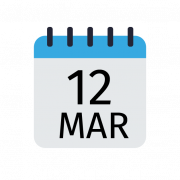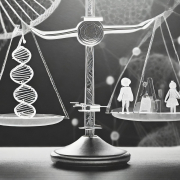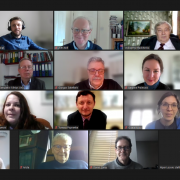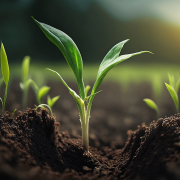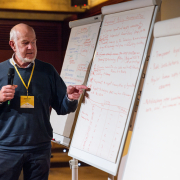Archive for month: March, 2024
Paving the Way to a Scientifically Literate Society Must Begin in Primary School
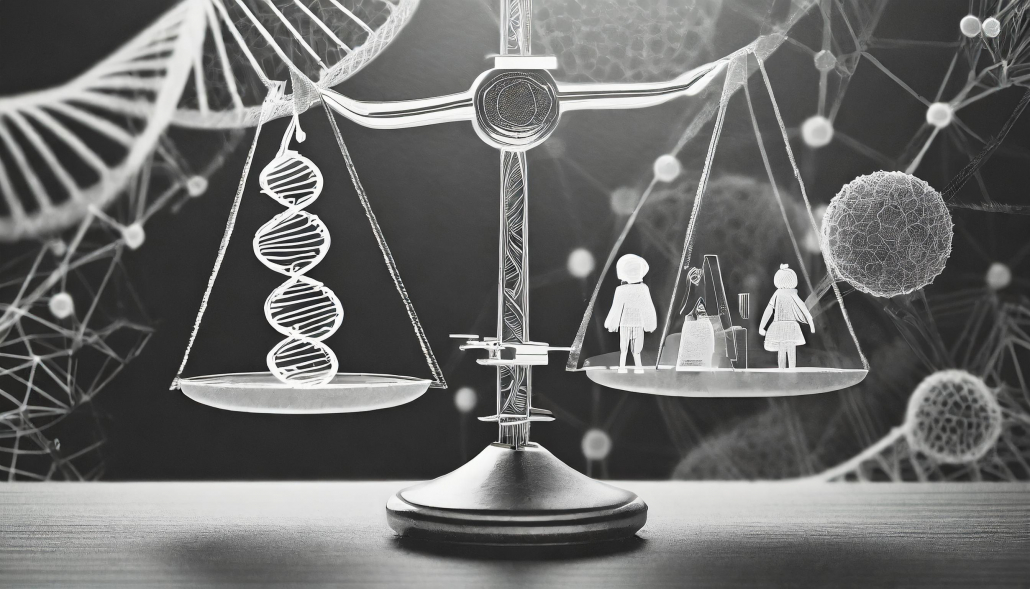
On 14 March 2024, ALLEA released a new statement advocating for strengthening the scope and role of science education curricula, at the primary and post-primary level, to equip young learners with the requisite knowledge, skills, and values to become informed, critical, responsible, and ethically conscious participants in a scientifically literate society.
In our modern world, where science and technology are deeply ingrained in every facet of our lives, it is becoming increasingly clear that society’s welfare, progress, and perhaps survival, hinges on building a citizenry that’s well versed in the ‘Nature of Science’ (NOS). While we go about most of our days engaging with science and technology without paying much attention to their marvels, there are times of crisis, such as during the peak of the Covid-19 pandemic, that the importance of ‘science literacy’ becomes unmistakable. Furthermore, the rise of new technologies and scientific progress brings with it ethical questions – and it will become ever more critical for upcoming generations to learn how to recognise and answer them. This ALLEA Statement argues that in order for them to be equipped with the skill-sets and values to successfully navigate such potential ethical dilemmas related to science and research, and more broadly to become active and informed citizens, current science education curricula, at the primary and post-primary level, needs to be broadened to include the NOS as well as research ethics.
Entitled, ‘Early Learning Opportunities for Shaping a Scientifically Literate Society’, the statement provides illustrations of the benefits of learning about the NOS and research ethics, which include, among others:
- Upholding trust in science, scientists, and scientific institutions – Teaching young learners that uncertainty and different interpretations, as well as the evolution of scientific knowledge based on new data and insights, are imperative to science could prevent the erosion of trust in science, scientists, and scientific institutions that often stems from a poor understanding of the scientific process.
- Defending against science mis- and disinformation – A better understanding of the NOS, for instance recognising who is considered an expert, why scientists may disagree, and their motivations, would help the next generation spot reliable information and credible sources, and thereby make them less susceptible to science mis- and disinformation.
- Developing ethical, informed, and compassionate citizens – Learning to reflect on values and ethics at an early age contributes to moral character development and helps guide children in their behaviour throughout their lives. Similarly, stronger incorporation of research ethics as part of science education curricula could support young people in developing the knowledge, skills, and values required to competently analyse and critically question the moral and ethical dimensions of scientific discoveries, new technologies, and experiments, which will be critical to societal well-being in an increasingly technology-dependent world.
The statement goes on to outline recommended actions to shape a scientifically literate society from the ground up, which include, among others:
- Incorporating learning objectives on the NOS and research ethics into primary and post-primary curricula, through the targeted integration of the pedagogies into existing science education programmes
- Increasing the enrolment of schools into participatory research and citizen-science projects to not only increase basic understanding of science, but also to encourage young people to pursue STEM careers
- Supporting the development and implementation of NOS and research ethics pedagogical courses in initial teacher education (ITE) and continuous professional learning (CPL) programmes for teachers
This ALLEA statement was formulated by the ALLEA Working Group Science Education, with Dr Cliona Murphy (WG chair), Mathijs Vleugel and Maria Ronald (ALLEA Secretariat) as principal authors. Additional insights were obtained from the ALLEA Permanent Working Group on Science and Ethics and external expert Dr Eve Poole.
Read the full statement here.
ALLEA Working Group on the ERA Meets to Discuss International Research Collaboration
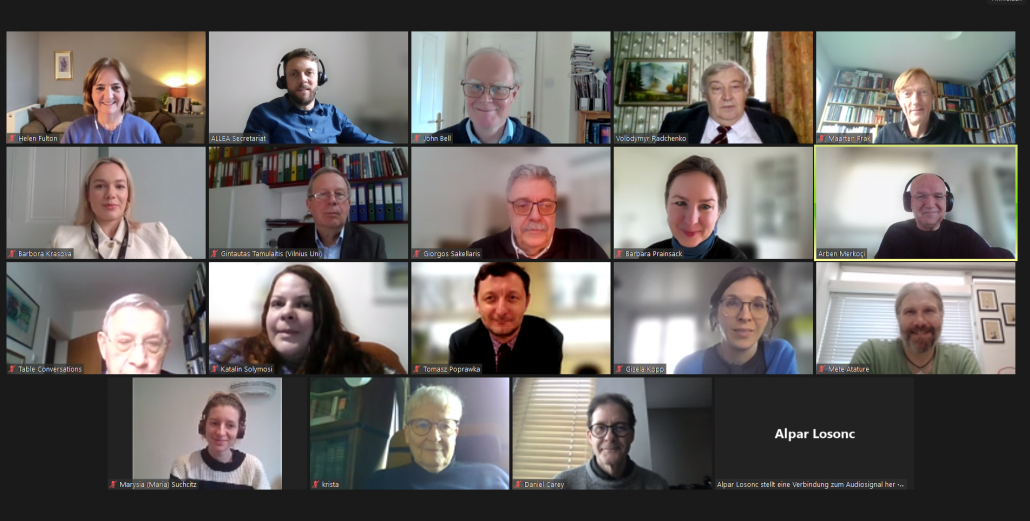
Semi-annual meeting of ALLEA Working Group on the ERA
The ALLEA Working Group on the European Research Area (ERA) met online on 12 March 2024 to address key developments and strategies for the advancement of European research collaboration and funding.
The meeting, attended by representatives from 17 ALLEA Member Academies, featured discussions on critical issues, such as the upcoming EU Framework Programme for Research & Innovation (FP10), the challenges for international research collaboration, and research (in)security in the context of rising geopolitical tensions.
ERA Forum for Transition
Following a warm welcome by the working group chair, Professor Arben Merkoçi from the Academy of Sciences of Albania, the meeting began with a comprehensive update on recent developments within the ERA Forum for Transition, an expert group in which ALLEA represents the European Academies of Sciences and Humanities. Deliberations included progress updates on the ERA Policy Agenda 2025-27 and guidelines for the responsible use of generative Artificial Intelligence (AI) in research. Additionally, the introduction of the new ERA Policy Platform sparked interest among participants and was welcomed as an important instrument for enhancing collaboration and coordination within the European research community.
Framework Programme 10 (FP10)
Discussions surrounding FP10 highlighted the impact of the recently published ‘ALLEA Statement on the Guiding Principles for FP10′. The lack of sufficient funding for basic and excellent research and the ongoing controversy surrounding ‘widening’ participation in the EU sparked a spirited dialogue among the working group members on how to encourage more inclusive research practices and equitable participation across European regions.
Research collaboration versus research security?
In the context of rising geopolitical tensions around the world, the working group discussed how European research is being adversely affected by malicious interference, and how open research collaboration is being misused in ways that impact Europe’s security, as well as its ethical principles and social norms, such as research integrity, academic freedom, and institutional autonomy. A recent Proposal by the European Commission for a Council Recommendation on Research Security and consultations on a White Paper aimed at enhancing support for research and development involving technologies with dual-use potential were also discussed.
The ALLEA General Assembly 2024, celebrating 30 years of ALLEA, will feature an open forum for ALLEA Member Academies, as well as a Public Symposium, titled, ‘European Research Collaboration in a Shifting Geopolitical Landscape’, to further discuss these topics, which are integral to the future of European research and innovation. Register now!
Intellectual Property and New Genomic Techniques: Webinar Highlights
Exploring the intricate domain of Intellectual Property (IP) regulations and their impact on crop breeding in Europe, the webinar ‘Impact of the IP System on New Genomic Techniques’ ignited engaging discussions among participants on 6 March 2024.
At the heart of the webinar was the presentation of the recent ALLEA statement ‘Measures to Ease the Impact of the IP System on New Genomic Techniques for Crop Development‘. This publication outlines potential measures aimed at alleviating the challenges imposed by the prevailing IP system on NGTs. Following this presentation, two stimulating impulses further enriched the discussion, paving the way for an engaging exchange of ideas subsequently. The recording of the statement’s introduction, as well as the two impulses, is available below.
The webinar served as a forum for an inclusive exchange of perspectives, with stakeholders from diverse sectors —including breeders, farmers, researchers, and policymakers— actively engaging in the dialogue.
The participants explored the practicalities and possible consequences of implementing the diverse measures outlined in the ALLEA Statement, aiming to strike a balance between fostering innovation and ensuring equitable access to these technologies and their products. Various voluntary and legislative solutions were evaluated within the broader context of patent systems in place in other parts of the world and compared to the experiences gained in other fields of technology.
Highlighting the importance of a nuanced approach, participants underscored the necessity of first conducting more thorough analyses regarding the possible positive and negative impacts of potential measures, especially also in the light of ongoing European endeavours to develop a new regulatory framework for NGTs.
ALLEA Holds Workshop to Depolarise the Debate on Sustainable Agriculture
On 31 January, ALLEA and Re-Imagine Europa (RIE), its partner in the Task Force on Sustainable Food Systems and Innovation, jointly organised an invite-only workshop to discuss the increasingly polarised nature of the current debates on need for, and transition to, sustainable food systems in Europe.

